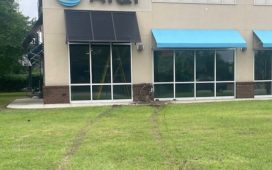A friend told me about a recent experience at a fast-food restaurant. He arrived to pick up and pay for his order, and the cashier made a point of twice pointing him to the tip jar. My friend asked me, “Why should I pay him extra when I pick up a sack? Doesn’t everyone understand that I’ve already paid for that?” It’s a fair question, and one that springs to mind with Colorado House Bill 1303, which recently passed out of the House of Representatives. The legislation will create yet another “enterprise” (a government-run business designed to circumvent the taxpayer refunds normally paired with overcollected revenues under the Taxpayer’s Bill of Rights). It will be funded with a new fee impose on insurance companies that issue policies to Colorado drivers.
This new enterprise is expected to collect $32 million in its first two years of operation, with the costs inevitably passed along to every Colorado driver. Under the direction of the existing Transportation Commission (comprised of 11 members appointed by the Governor), the enterprise will spend most of its income on grants for projects that reduce collisions between vehicles and bicyclists, while the rest goes toward reducing vehicle-wildlife collisions.
Gee, what a novel idea – spending transportation money to make driving in the state safer! A cynic might ask, “isn’t that the kind of thing we’re already paying gas taxes and vehicle registration fees for? Don’t we already fork over money for better and safer roads virtually every week? Why are Democrats now forcing us to pay even more?” This bill is the transportation tip jar.
Misplaced transportation priorities
In his ‘State of the State’ address this past January, Governor Polis said, “Our housing and transit goals go hand in hand with our climate goals and our affordability goals. More, better, less expensive transit options, with housing closer to job centers and transit hubs, save money and mean less pollution and less congestion.” This statement reflects the overarching ideology of Colorado Progressives. Under the guise of saving the planet, Democrats have enacted legislation concerning our energy, transportation, and housing infrastructures, the very foundations of our economic life. They tolerate the use of electric cars for now, but because they envision urban (i.e., city) life as ideal, they want residents packed into cities and reliant on mass transit. Yet thus far, Democrats have had a difficult time convincing the public.
Most of the people that travel to work in Colorado do so via private or work vehicles (nearly 98%) vs. mass transportation. Though we have spent billions to change our energy and transportation infrastructures, virtually everything we purchase at a grocery or drug store is delivered overland by trucks.
But Colorado roads are now among the worst in the nation. According to a 2025 report from the Reason Foundation, Colorado ranks 43rd in the nation when it comes to the condition of its roads, road safety, and funding for transportation. That puts us in the company of Louisiana, New York, and California. Meanwhile, the cost we’re paying for administration is 26th – that means we’re spending a fair bit on the administration of roads, we’re just not getting actual roads. We’re one of only two states with over 5% of rural interstate roads in poor condition (at 7.11%). On top of that, Coloradans now spend almost a full week of work stuck in traffic (36.2 hours).







